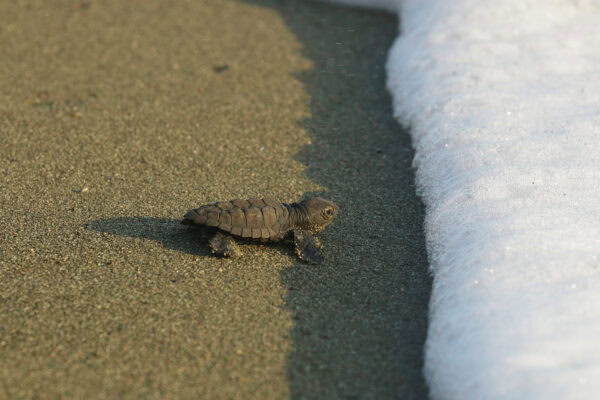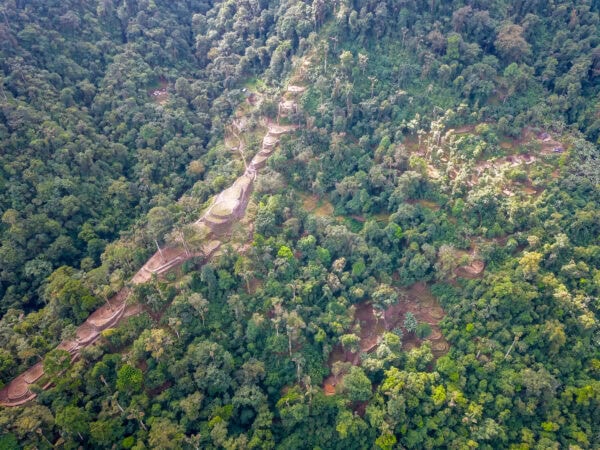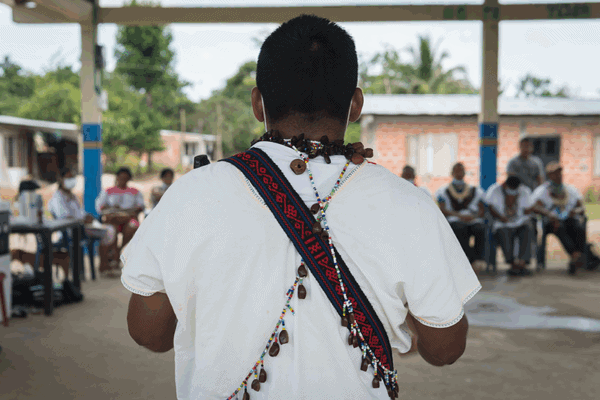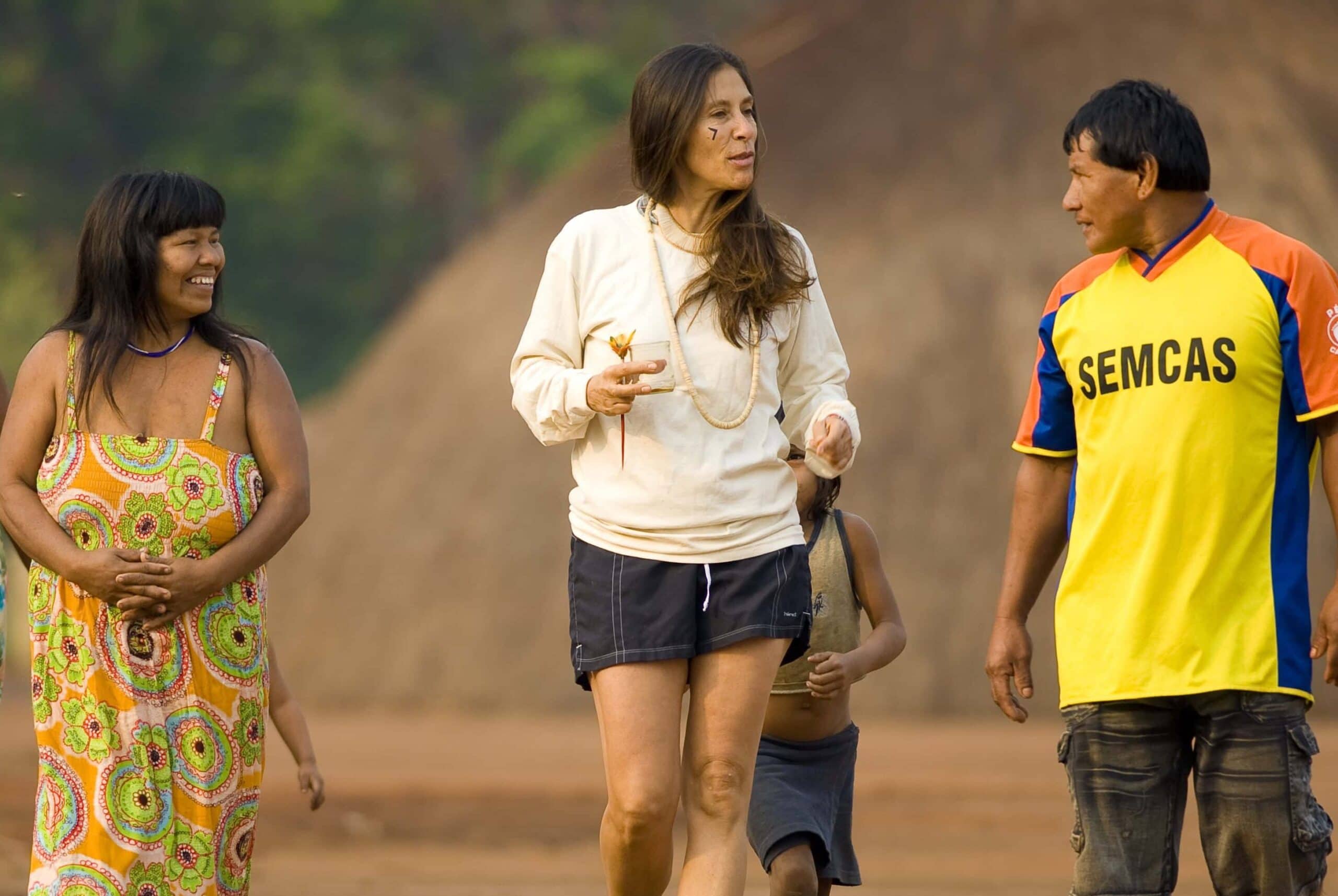
Ulupuwene, within the Batovi Indigenous Territory of Brazil, has a special place in the heart of ACT. It is a small community of courageous Waura people, led by Chief and Pajé (shaman) Eleukah and his wife Kapi, who is also a powerful shaman. We met a little over two decades ago, and since then, together, we have proven what is possible through hard work and a relationship built on trust.
Though I’ve visited many times over the years, this visit—after six years away—was especially emotional. The long journey had changed. What was once an 18-hour bus ride from Brasília, followed by a short flight, a ride on an old truck to the river’s edge, and finally a 90-minute boat trip into Ulupuwene, has now been replaced by a dirt road leading directly to the community.
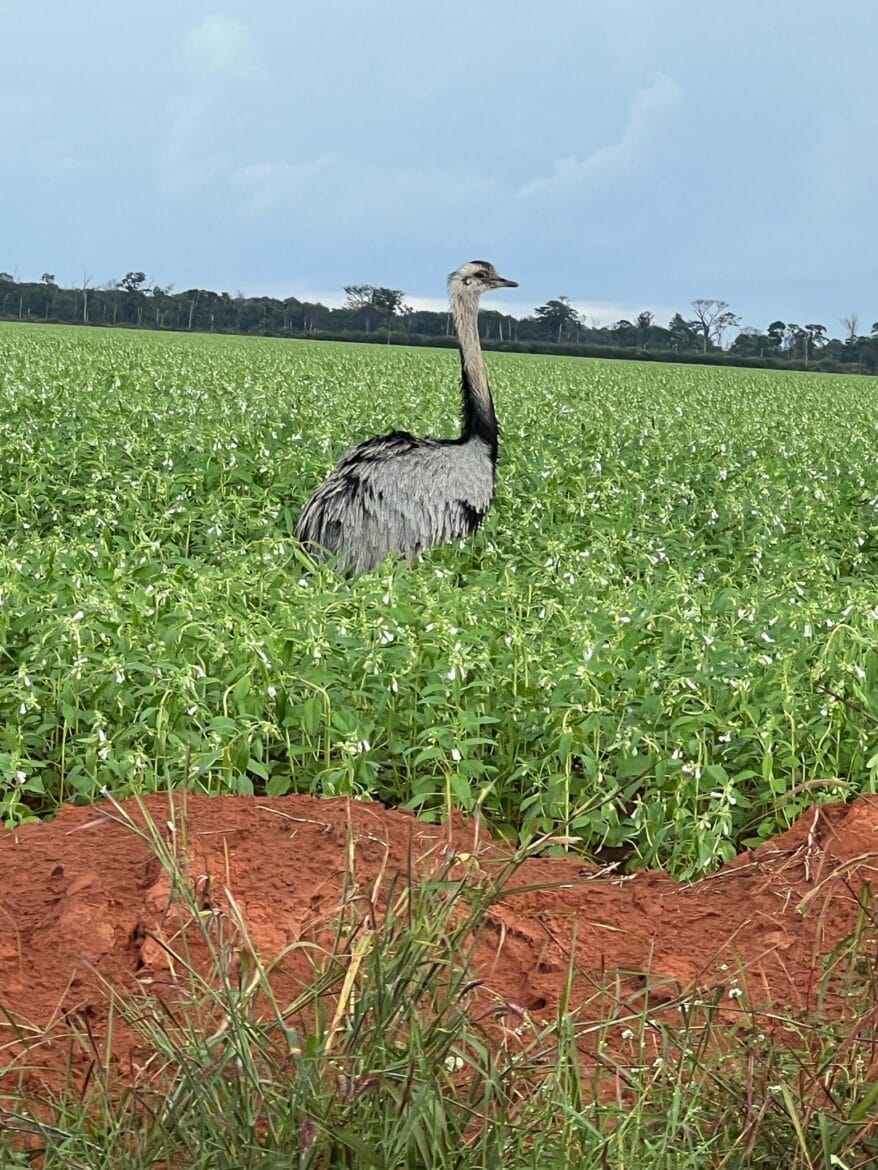
The slow, 1,300-kilometer drive offered a stark opportunity to witness the dramatic changes in land use and the mounting ecological threats facing Indigenous communities. Endless fields of soy, corn, sorghum, and sesame stretched for miles, broken only by a lonesome tree or a bewildered rhea (a South American ostrich). Faint tree lines in the distance marked the boundaries of Indigenous territories—thin defenses against encroaching agricultural expansion. Seeing these communities face extinction so directly was deeply sobering.
The biodiverse tropical savanna returns
But everything shifted as we entered Ulupuwene. The biodiverse tropical savanna returned. We heard birds, spotted tapirs, and were enveloped by the vibrant sounds of the forest. As we arrived in the center of the village, the entire community greeted us in traditional attire, dancing and celebrating. It was overwhelming—in the best way. I fought back tears. It truly felt like returning to family.
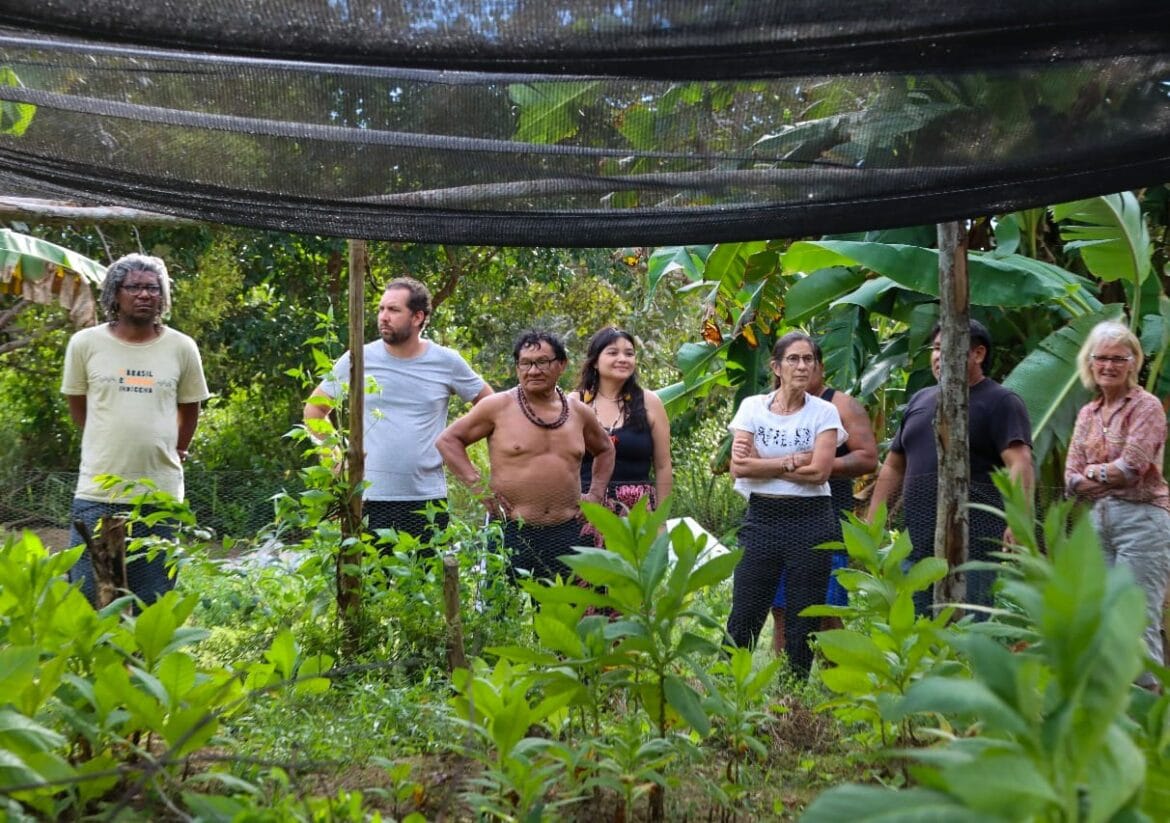
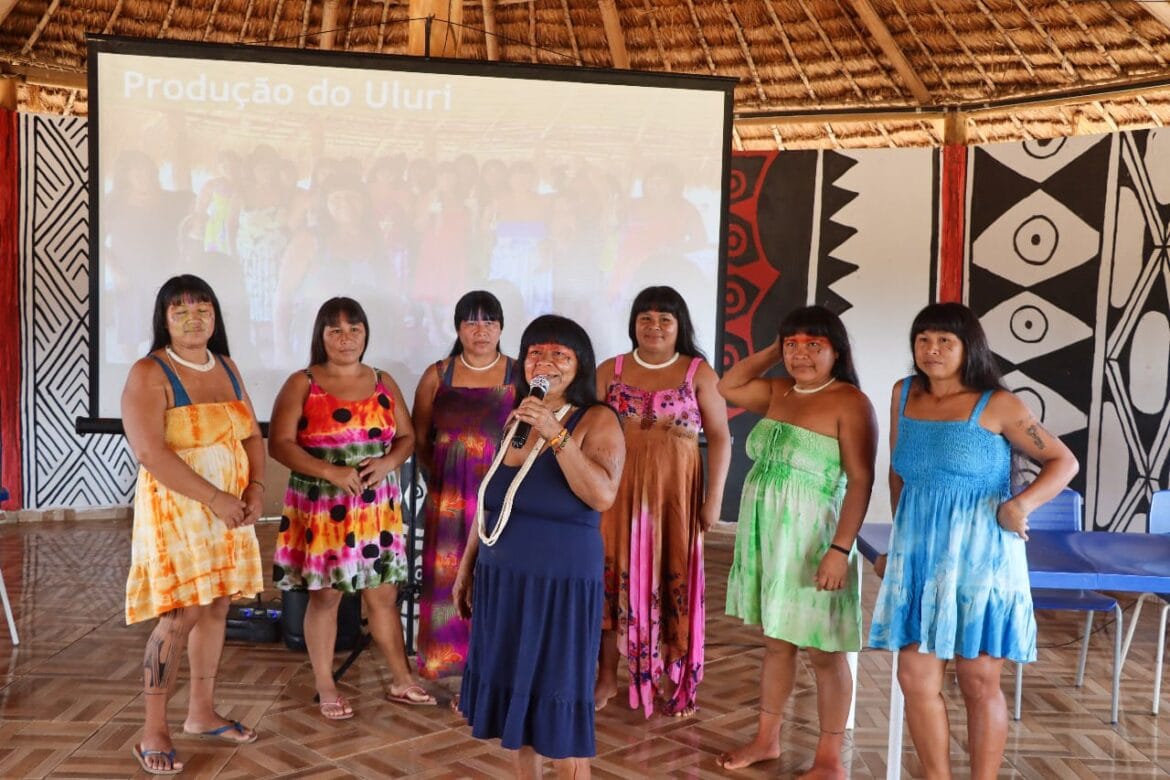
This visit marked an important moment for ACT. Since the founding of ACT-Brasil in 2019, we’ve deepened our commitment to supporting Indigenous-led conservation efforts in the country. Our long-standing relationship with Ulupuwene is now formalized through a partnership with the Ulupuwene Indigenous Association (AIU). The purpose of this visit was to see how projects developed through this partnership are taking shape on the ground—and to continue co-creating what comes next.
Protecting sacred places
Over the years, ACT and Ulupuwene have closely collaborated to build a community—literally from scratch. Why? Because Ulupuwene is an ancestral sacred site, a place of deep cultural and spiritual significance that was left outside the original boundaries of the Xingu Indigenous Park when it was created in 1961. The late Chief Atamai asked ACT for support in resettling part of his people there. When the decision to move was finalized, ACT provided the funding to support this ambitious endeavor. The first phase was modest—just a boat, a motor, food, hammocks, tarps, and flashlights—but within a year, several thatch malocas (roundhouses) had been built for families to settle in.
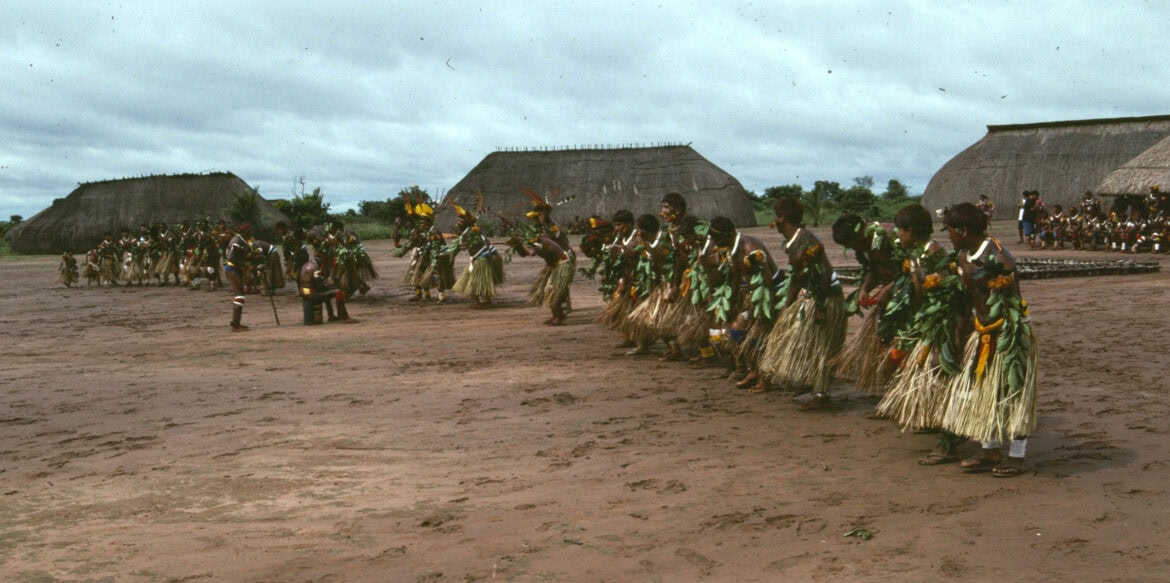
Little by little, conversations between Eleukah, the women, elders, other tribal leaders, and myself sparked the vision of a “model community for the Xingu”—one grounded in tradition, with a strong transfer of knowledge, autonomy, and sustainability. We dreamed together. At times, the ideas were outlandish. But we always came back to what was possible—without compromising culture, dignity, or the well-being of the community.
Eleukah’s vision was crystal clear: they needed access to potable water, traditional food systems—roças (vegetable and medicinal plant gardens), a formal association Ulupuene Indigenous Association (UIA) to manage governance, a school designed with traditional architecture, clinics, internet access, and capacity-building programs to meet national and regional standards for health and education.
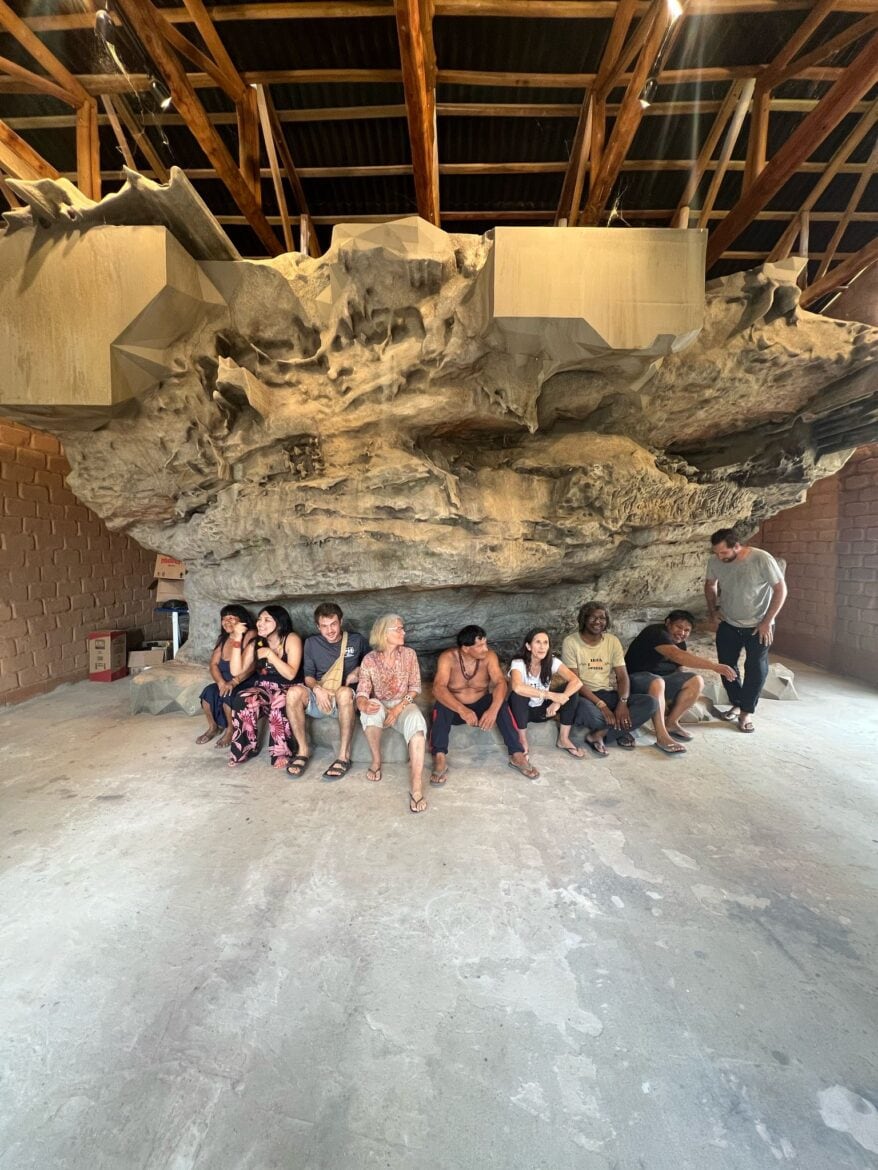
Ulupuwene has remained remarkably faithful to this vision. Despite the increasing impacts of climate change—fires, flooding, droughts—and growing threats to food security, the people of Ulupuwene remain resilient. Traditional fishing, once a primary source of protein and cultural connection for the Waura, has suffered due to both sport fishing licenses and the increasing pollution of rivers. Once pristine, these waterways are now slowly being contaminated by agricultural runoff—pesticides, fertilizers, and sediment from nearby industrial farms—degrading water quality and aquatic life. Yet Eleukah and his community continue to uphold their traditions, their medicine, their language, and their joy. They laugh, they dance, and they recall every visit with astonishing detail.
What’s next for Ulupuwene
Today, Ulupuwene is recognized as one of the most respected communities in the region—not only for staying true to its cultural roots but for successfully bridging ancestral knowledge with modern clean technologies. There are still many needs and ongoing challenges, but they are proud warriors—guerreiros. Their story is a powerful example of what is possible through long-term, trust-based partnerships like the one Ulupwuene shares with ACT.
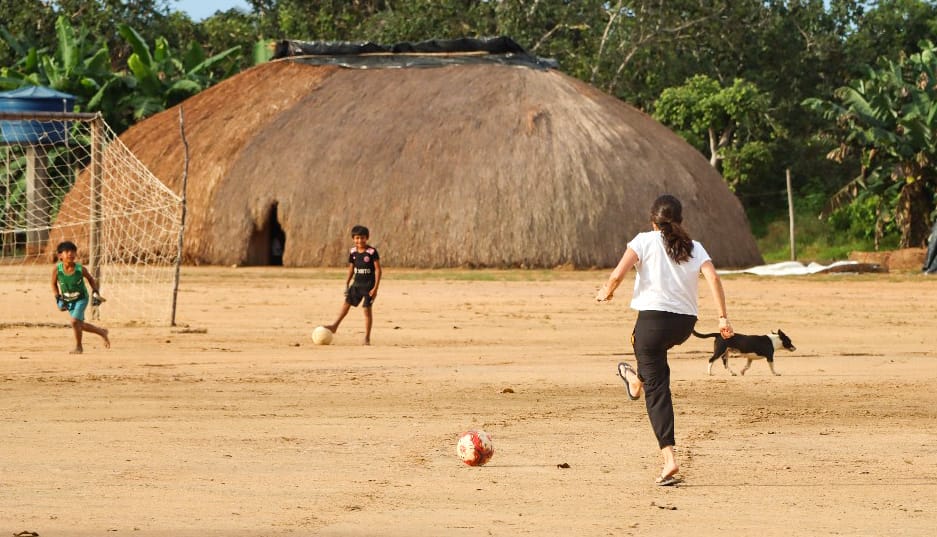
The passage of time is unmistakable—not just in our faces as we grow older, but in seeing the babies I once held now as mothers, and even grandmothers. I feel immense pride and gratitude for the opportunity to walk this path alongside Eleukah and his remarkable community.
Share this post
Bring awareness to our projects and mission by sharing this post with your friends.


